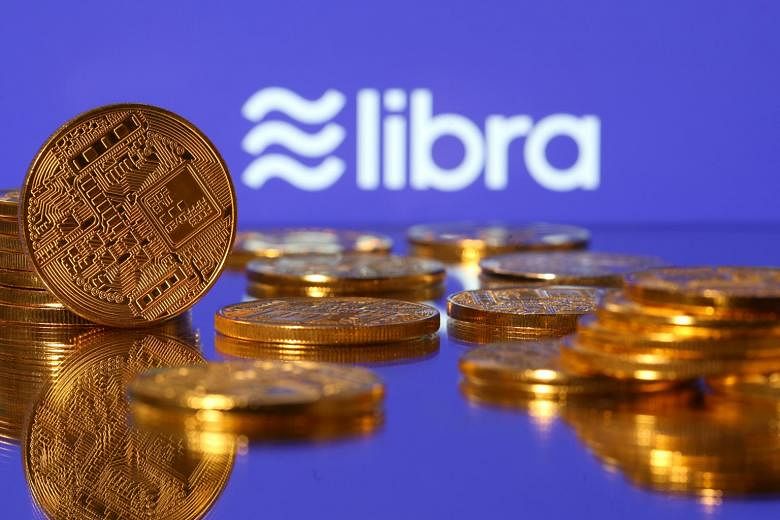SINGAPORE (BLOOMBERG) - Facebook Inc's embattled bid to create its own digital currency has laid bare shortcomings in cross-border payments and financial inclusion that banks and regulators must address, according to Singapore's top central banker.
Central banks "need to answer" the challenge posed by Facebook's attempt to create a faster and more affordable payments network via Libra, Ravi Menon, managing director of the Monetary Authority of Singapore (MAS), said in an interview earlier this week.
"They are pointing to a correct problem, they are offering a solution," he said. The challenge is to see if similar results can be achieved "within the existing banking framework - which is tried and tested" and with the involvement of central banks, he said.
Facebook set off alarm bells among central banks in June when it announced plans to create a digital currency seen by many as a threat to existing monetary regimes. Libra has drawn criticism from the likes of Federal Reserve chairman Jerome Powell, who has raised concerns about money laundering and consumer protection, and the European Central Bank's Yves Mersch, who described it as "beguiling but treacherous."
A critical part of Facebook's plan was to secure the support of major players in the payments and tech industry to launch its stablecoin, which is likely to be tied to a basket of currencies including the Singapore dollar. The Libra Association, the group that will oversee the digital currency, took a blow this month when several key partners, including Mastercard, Visa and EBay, abandoned the project.
Mr Menon said Facebook's proposal though has generated a "tremendous amount of new thinking" in certain areas.
About 1.7 billion people worldwide, or close to one-third of adults, are 'unbanked,' or without an account at a financial institution. Meanwhile, a study on worker remittances by the World Bank calculated that the global average cost of sending US$200 "remained high" at around 7 per cent in the first quarter of 2019.
Facebook's Libra shows the banking community hasn't done "too good a job," said Mr Menon, though it still needs to provide an answer. "Do we need a Facebook kind of solution outside of the banking system in order to solve this problem? I'm not so sure."

